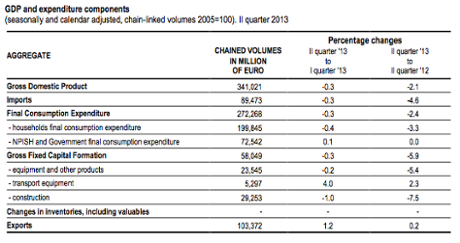 The head of Slovenia's central bank,
Bostjan Jazbec, has said it will consider asking for outside help if the
country's funding costs stay high. He also said Slovenia's GDP would shrink by 2.6% this year, more than April's
1.9% forecast.
The head of Slovenia's central bank,
Bostjan Jazbec, has said it will consider asking for outside help if the
country's funding costs stay high. He also said Slovenia's GDP would shrink by 2.6% this year, more than April's
1.9% forecast.
Slovenia's banks are largely state-owned and saddled with bad loans worth
22.5% of its GDP.
Mr Jazbec's comments are likely to fuel speculation over whether Slovenia
will be bailed out by the EU.
Still hope
Mr. Jazbec said he would consider asking for aid if yields on Slovenia's bonds
remained high.
During a news conference, he said the country was doing everything it could
to bring its funding costs down.
"If that is not successful, then there is a possibility to ask for help
within various programmes," he added.
Meanwhile, Slovenia's Prime Minister, Alenka Bratusek, has admitted to
parliament the amount needed to rescue the banks is "completely unknown".
But Ms Bratusek told STA, the state-owned news agency: "We are very intensely
preparing measures that are needed, so as to avoid asking for help."
The results of the bank's stress-tests, out at the end of November, will
indicate whether or not a bailout is needed.
Eurozone members can ask for help from the European Stability Mechanism, set
up in 2012.




